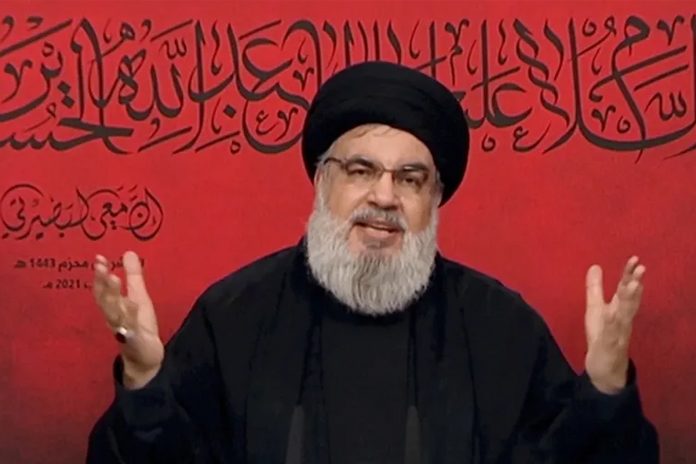Hassan Nasrallah, the longtime leader of Hezbollah, was killed in a massive Israeli air attack on Beirut on 27 September, the Israeli Defence Forces claimed.
Israel carried out a devastating wave of air raids in Lebanon’s capital Beirut that it said targeted the headquarters of the Lebanese armed group Hezbollah.
A series of massive explosions sent huge clouds of smoke soaring above the densely populated Haret Hreik neighbourhood in Dahiyeh, southern Beirut, around dusk on Friday.
Waves of attacks continued early on Saturday, pushing thousands of residents to flee the area.
On Saturday, Israel claimed that Hezbollah’s leader Hassan Nasrallah was killed in an air strike on Dahiyeh, but Hezbollah did not immediately issue a statement on his fate.
At least six people were killed and 91 others were wounded in the attacks, according to Lebanese health authorities, with the toll expected to rise much higher.
Israel’s military has since said on Saturday it has mobilised three reserve battalions to bolster its Central Command defence amid escalating conflict with Hezbollah in Lebanon.
Born in 1960, Nasrallah reached the peak of his popularity after the war with Israel in 2006. Fighting against Israel is what defined him and his Iranian-backed group, Hezbollah, for years.
In 1982, shortly after Israel’s invasion of Lebanon, Nasrallah formed a group with Iranian support that would later become Hezbollah. By 1985, Hezbollah had crystallised its own worldview in a founding document, which addressed the “downtrodden of Lebanon“ and named the Supreme Leader Ayatollah Khomeini of Iran as its one true leader.
As the head of Hezbollah for more than 30 years, Nasrallah was often described as the most powerful figure in Lebanon despite never personally holding public office. His critics said his political muscle came from the weapons Hezbollah held, and that it has used against domestic opponents, too. Nasrallah repeatedly turned down calls for his group’s disarmament, saying, “Hezbollah giving up its weapons … would leave Lebanon exposed before Israel.”
Hezbollah faced one of its biggest challenges after the group opened up a front against Israel to help relieve pressure on its ally Hamas in Gaza, in October 2023. The group suffered losses after months of cross-border fighting and Israeli attacks that targeted significant figures in the movement. But Nasrallah remained defiant.
While Nasrallah has been described as the “personification of Hezbollah”, the group he built over more than three decades is highly organised and remains determined.
Hezbollah is unlikely to crumble under the weight of Nasrallah’s assassination, but in his death, the group has lost a leader who was charismatic and whose influence extended far beyond Lebanon. The group will now need to select a new leader, who in turn will need to decide what direction to take Hezbollah in. Whatever the group decides will affect more than Hezbollah: ripples will be felt across Lebanon and the wider region.
(With Agency Inputs)










